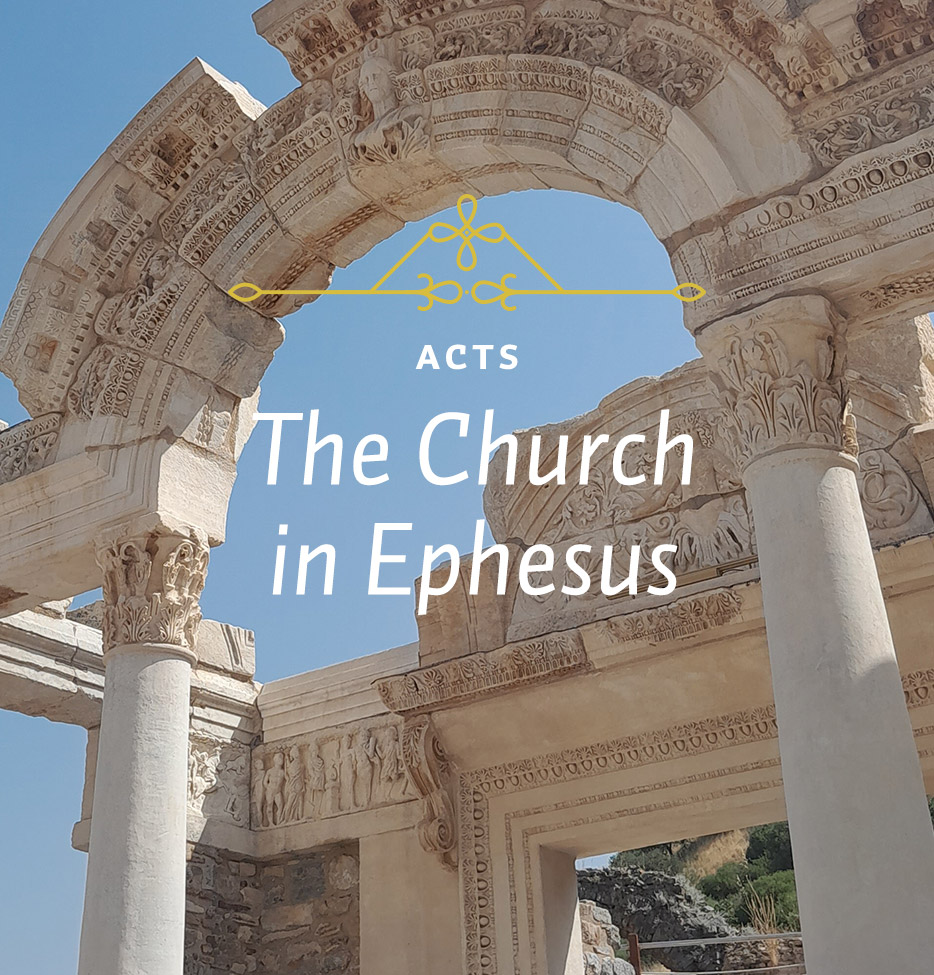In 1978, Roger S. Greenway, a professor and former missionary to various parts of the world, published a book called Apostles to the City: Biblical Strategies for Urban Missions. It is an important book in view of the shift of the world’s populations to the cities in our time, and it is helpful for studying Acts because toward the end of the book the author rightly focuses on the strategy of Paul in reaching cities. I say “rightly” because, of all the people in the Bible who worked in cities and had a strategy for urban evangelization, the Apostle Paul heads the list.
As I study Acts, I sense that at the beginning Paul had probably not worked out his urban strategy carefully. He had some ideas about reaching major cities. But when he started out he seemed simply to be visiting one community after another and not to be particularly focused on cities. However, as time went on Paul came to recognize that if the world was going to be reached effectively, it would have to be through a ministry focused on the great cities of the empire. So we see him developing this strategy, focusing on the cities and, as I indicated in earlier studies, spending more and more time in them.
This is relevant to our time, because today, more even than then, we live in a world of cities. And the task we face in bringing the Gospel of the supernatural redemption of man through the work of Christ to secular people is the challenge that faced Paul.
Greenway points out that Paul had certain basic strategies, and we ought to keep them in mind as we proceed.1
1. Paul had a message, and his message demanded personal repentance and conversion. Sometimes when people think of advancing into new areas, they think of changing their message to accommodate the new audience or situation. Are we going into the cities? If so, we will have to say what city people want to hear, they think. Are we going on television? If we are, we imagine that we will have to say what the television audience has been programmed to expect. The Apostle Paul never did that. He taught the nature of sin, the need for repentance, the saving work of God in Christ, and the necessity of conversion. That is the thing the Apostle Paul always kept before his mind. We have already seen it in the accounts of these missionary journeys.
2. Paul planted churches. Paul was not just an evangelist who somehow was removed from the task of planting churches. When he went into a new area, church planting was his goal. If he settled in Corinth, he wanted to leave a church in Corinth when he passed on to other cities, and he wanted to leave Corinthians in charge of it.
That is something we need to remember, too. When we enter an area we need to verbalize the Gospel, which we can do through books, tracts, radio, television and other forms of mass communication. Books will explain Christian doctrine. Tracts will popularize the Gospel and attract new people. Radio and television will break new ground. But verbalization alone is not enough. Verbalization must be followed by actualization. There must be living communities of believers, so people living in the cities will be able to look up and say, “Not only are these Christians speaking the Gospel to us, they are living it, too.”
I notice that much of Paul’s work was focused on what we would today call “house churches.” Sometimes, as in Ephesus, Paul had a formal lecture hall. What he did there would correspond closely to what we do in our churches on Sundays. We use them as places to teach. That was an important part of Paul’s strategy. But where he succeeded, churches were established, and these, it would seem, were in the homes of the people. So here and there throughout these cities there were little communities of believers who met together regularly to worship God and model the Gospel by their obedience to Jesus Christ.
3. Paul used his churches as bases for reaching out into the adjoining areas. Not only did Paul have a message, which was a message of repentance and faith in Jesus Christ as the Savior, and not only did he establish churches consisting of those who heard his message and believed it, but once he had established churches he also drew them into his missionary strategy by using them as bases for the extension of the Gospel into the surrounding neighborhoods and the world.2
1Roger S. Greenway, Apostles to the City: Biblical Strategies for Urban Missions (Grand Rapids, MI: Baker, 1978).
2Ibid., 79-96.






